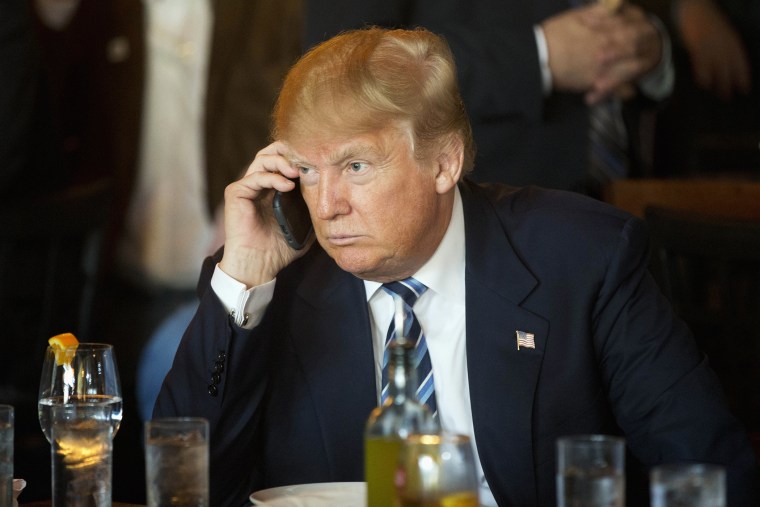Donald Trump has encouraged Americans not to believe stories that cite anonymous sources. There is some irony to his warnings.
One of the biggest supporters of President Donald Trump's trade policies, according to the president, is the unnamed chief executive officer of a mystery company."I was with one of the greatest companies in the world. The chief executive officer. Very short while ago. And it really affects him," Trump said at a July 31 campaign rally in Tampa, referring to his controversial use of tariffs. "He said 'You know what, this does affect our company. But, Mr. President, keep going. You're doing the right thing."'Trump didn't identify his supporter, and the White House won't say who it is. Trade groups representing the largest U.S. businesses and CEOs have almost universally opposed Trump's disruptive approach to trade. But the person fits a model: an anonymous figure -- important and powerful -- who invariably supports the president's position, according to Trump himself.
The Bloomberg News report highlighted Trump's frequent reliance on "anonymous validators" -- who, coincidentally, privately tell the president how right he is, even if we're not allowed to know who these people are.
It's not exactly a secret that this president has little use for substantive policy arguments, which only makes him more reliant on arguments based on anecdotes. The more the conventional wisdom leans against him -- with business leaders opposing his trade agenda, for example -- the more eager Trump is to share stories about the secret messages of encouragement he's received from mysterious, unidentified pals.
"Trump's unnamed allies have a lot in common," Bloomberg's piece added. "They are usually described as high-ranking and highly talented. They are almost always men."
And they are also probably imaginary.
Part of the challenge of examining a dynamic like this is that it's nearly impossible to say with absolute certainty whether Trump's anecdotes are real. They may seem suspicious, and they may not even make a lot of sense, but unless someone is with the president constantly, some speculation is required.
But we can draw some inferences based on recent history. As regular readers know, for example, Trump has a lengthy track record of describing conversations -- often in considerable detail -- that simply never occurred.
In June, for example, he described a chat with "Tonight Show" host Jimmy Fallon that Trump made up. In August the president described a phone conversation with Mexican President Enrique Pena Nieto that, in reality, never occurred. Before that, Trump was excited about a phone call he’d received from the head of the Boy Scouts, which also hadn’t happened.
In July, he offered details of a phone conversation with the head of a large nation, with over 300 million people, who complained to the American president about the foreign country’s 9% GDP growth rate. There is no such country. Though Trump talked about the phone call more than once, he made it up.
Around the same time, he went into quite a bit of detail about the behind-the-scenes discussions he participated in over border-wall construction in California, despite the fact that those conversations apparently weren’t real.
Given all of this, what are the odds the president spoke with the CEOs of "one of the greatest companies in the world" who told Trump to stick with his trade agenda, even if his company suffers?
